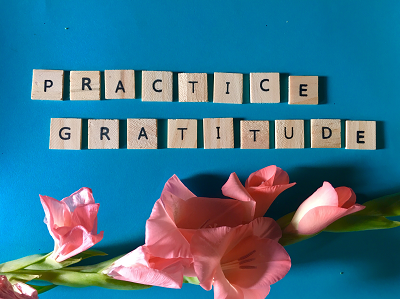![Practise Gratitude]() I. Introduction
I. Introduction
Gratitude is an important aspect of mental health and well-being. Practising gratitude can shift mindset and promote positive emotions. This article will discuss what a gratitude practice is, the science behind gratitude and mental health, different types of gratitude practices, tips for incorporating gratitude into daily life, overcoming common barriers to gratitude, and the importance of consistency in a gratitude practice.
II. What is a Gratitude Practice?
A gratitude practice involves intentionally focusing on the positive aspects of life and acknowledging the things you are thankful for. This can be done through a variety of activities, such as journaling, meditation, or expressing gratitude to others.
III. The Science Behind Gratitude and Mental Health
Research shows that practising gratitude can improve mental health and well-being. Gratitude can affect the brain by activating the reward centre and promoting the release of feel-good hormones. Gratitude can also improve relationships by increasing social connections and empathy. Additionally, practising gratitude can increase resilience and help individuals cope with difficult situations.
IV. Types of Gratitude Practices
There are several different types of gratitude practices, including gratitude journaling, gratitude letters, and gratitude meditations. Gratitude journaling involves writing down things you are thankful for each day. Gratitude letters involve expressing gratitude to someone who has positively impacted your life. Gratitude meditations involve focusing on feelings of gratitude during meditation.
V. Incorporating Gratitude into Daily Life
Incorporating gratitude into daily life can be done through small actions, such as noticing the beauty in nature, expressing gratitude for a delicious meal, or taking a moment to appreciate a kind gesture from someone else. Setting aside time each day for a gratitude practice can also be helpful in establishing the habit.
VI. Overcoming Common Barriers to Gratitude
Negativity bias and a busy lifestyle can make it difficult to cultivate a gratitude mindset. It is important to consciously shift focus to the positive aspects of life and challenge negative thoughts. Finding a gratitude practice that fits into a busy lifestyle can also be helpful, such as incorporating gratitude into daily routines or finding gratitude in small moments throughout the day.
VII. The Importance of Consistency in a Gratitude Practice
Consistency is key in establishing a gratitude practice. It is important to make gratitude a habit and stay motivated. Setting achievable goals and finding accountability can help with consistency.
VIII. Conclusion
Practising gratitude is a simple and effective way to improve mental health and well-being. By focusing on the positive aspects of life and acknowledging the things you are thankful for, gratitude can shift mindset and promote positive emotions. This article provides tips for starting a gratitude practice, overcoming common barriers, and staying consistent. Encouragement is given for readers to start their own gratitude practice and experience the benefits for themselves.

 I. Introduction
I. Introduction




